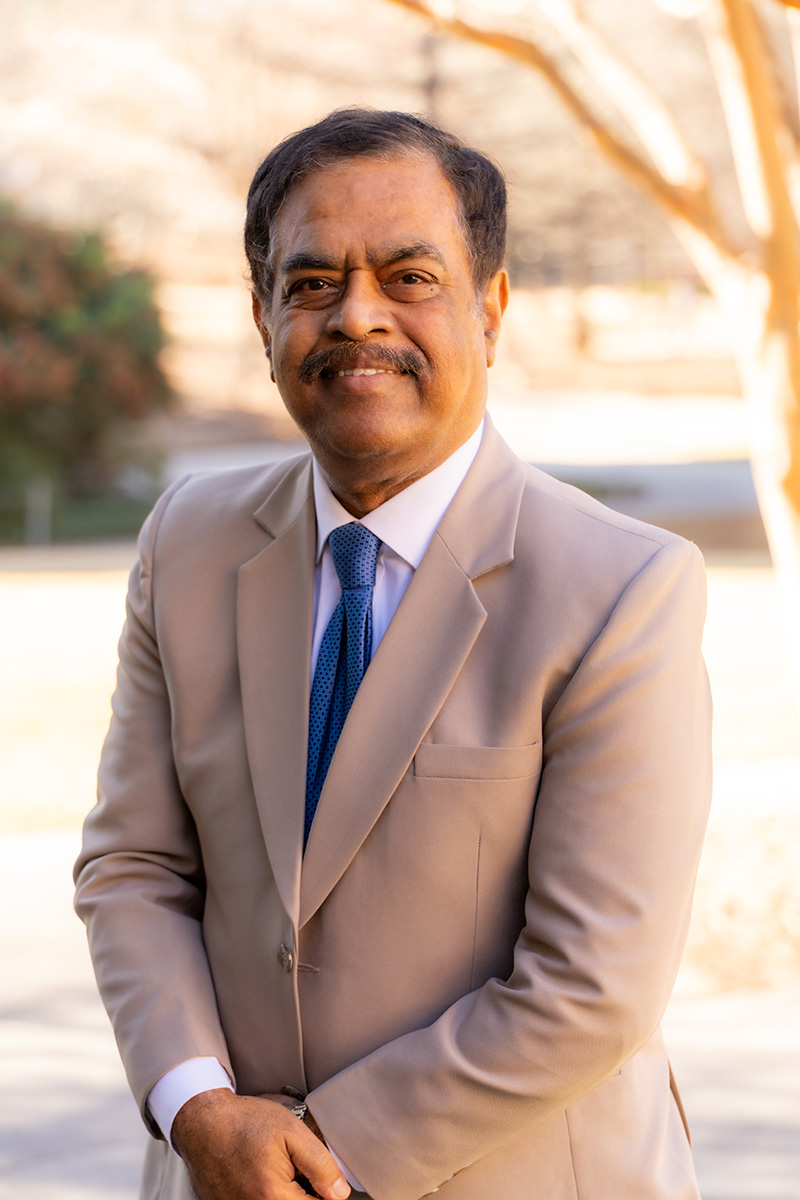Ph.D., Geology, Florida State University
1996
M.S., Geology and Geophysics, University of Hawaii
1987
M.S., Geology, University of Dhaka
1982
B.S., Geology, University of Dhaka
1980
Robert B. Cook Professor and Graduate Program Officer, Auburn University
2020 - Present
Professor and Graduate Program Officer, Auburn University
2011 - 2020
Associate Professor and Graduate Program Officer, Auburn University
2007 - 2011
Associate Professor, Auburn University
2005 - 2011
Assistant Professor, Auburn University
2000 - 2005
Post-Doctoral, Florida State University
1997 - 2000
Research and Teaching Interests
Dr. Uddin teaches undergraduate courses in Dynamic Earth and Earth & Life through Time. Among the graduate courses, he has been teaching Basin Analysis, Petroleum Geology, Sedimentary Petrology, Geology of Organic Matter, and Cycles through Earth History. Dr. Uddin also teaches directed studies courses in sedimentary geology emphasizing on dense-minerals and their chemistry. Dr. Uddin's research interests lie mainly in sedimentary geology, including clastic sedimentology, sedimentary petrology, tectonics and stratigraphy, detrital geochronology, basin analysis and provenance studies of sequences deposited in orogenic systems. His work so far has focused on onland sequences of the Himalayan-Assam-Bengal system, including both exposed sections and subsurface geology. Dr. Uddin also has been working on the clastic wedges of the Appalachian mountain belts. Dr. Uddin's principal research interests are to evaluate the unroofing history of the eastern Himalayas (including the Indo-Burman ranges) and the Appalachians by incorporating detailed sedimentary petrology, including both modal analysis of framework grains and semi-quantitative dense mineral studies, mineral chemistry of selected dense-mineral grains, bulk sediment geochemistry, isotopic fingerprinting, detrital geochronology, using 40Ar/39Ar and U/Pb methods, and paleomagnetic studies on the sediments from the eastern foredeep of the Himalayas (Bengal and Assam basins) and the Appalachian mountain belt. In collaboration with Drs. Jim Saunders and Ming-Kuo Lee, Dr. Uddin also work on projects on mineralogical profiling of arsenic-contaminated sediments and in-situ bioremediation of arsenic contaminated groundwater in Bangladesh and southern United States. An elaborate summary of these research projects is provided in the following web link: http://www.auburn.edu/hrl/. These projects have been funded by the US National Science Foundation. External research collaborators for these projects include, Drs. Clark Burchfiel and Sam Bowring from MIT, Dr. John Geissman from University of Texas at Dallas, Dr. Jack Pashin of Oklahoma State University, and Drs. Steve Kish and Roy Odom from Florida State University. Dr. Uddin has recently started evaluating sediments of the Cenozoic Himalayan foreland basin and the Carboniferous Midland basin of Texas for determining the petroleum source-rock and reservoir potential with collaboration through Devon Energy and Energen Resources.
- Uddin, M.R., Uddin, A., Nelson, J., Rahman, S.N., Zahid, A., 2025, Spatial Mapping of Vegetation’s Potential to Counter Seasonal Groundwater Salinity in Coastal Bangladesh: Earth Systems and Environment, Springer, https://doi.org/10.1007/s41748-025-00574-6
- Uddin, M.R., Uddin, A., Lee, M-K., Nelson, J., Zahid, A., Haque, M.M., and Sakib, N.. 2024, Geochemistry of arsenic and salinity-contaminated groundwater and mineralogy of sediments in the coastal aquifers of southwest Bangladesh: Water, 16, no. 10: 1442. https://doi.org/10.3390/w1610144
- Monami, S.J., Uddin, A., Hames, W.E., 2022, Multi-proxy provenance of the lower Pennsylvanian Pottsville sandstone of the northern Appalachian basin in Pennsylvania, U.S.A: Paleodrainage, sources, and detrital history: Journal of Sedimentary Research v. 92, p. 304–319.
- Jahan, S., and Uddin, A, 2022, Organic petrography and depositional environments of the upper Eocene Kopili Shale, Bengal Basin, Bangladesh: Journal of Asian Earth Sciences: X, v. X7, 100092
- Uddin, A., Hames, W.E., Peavy, T., Pashin, J.C., 2016, Detrital history of the Lower Pennsylvanian Pottsville Formation in the Cahaba Synclinorium of Alabama: Journal of Sedimentary Research, v. 86, p. 1287–1297.

